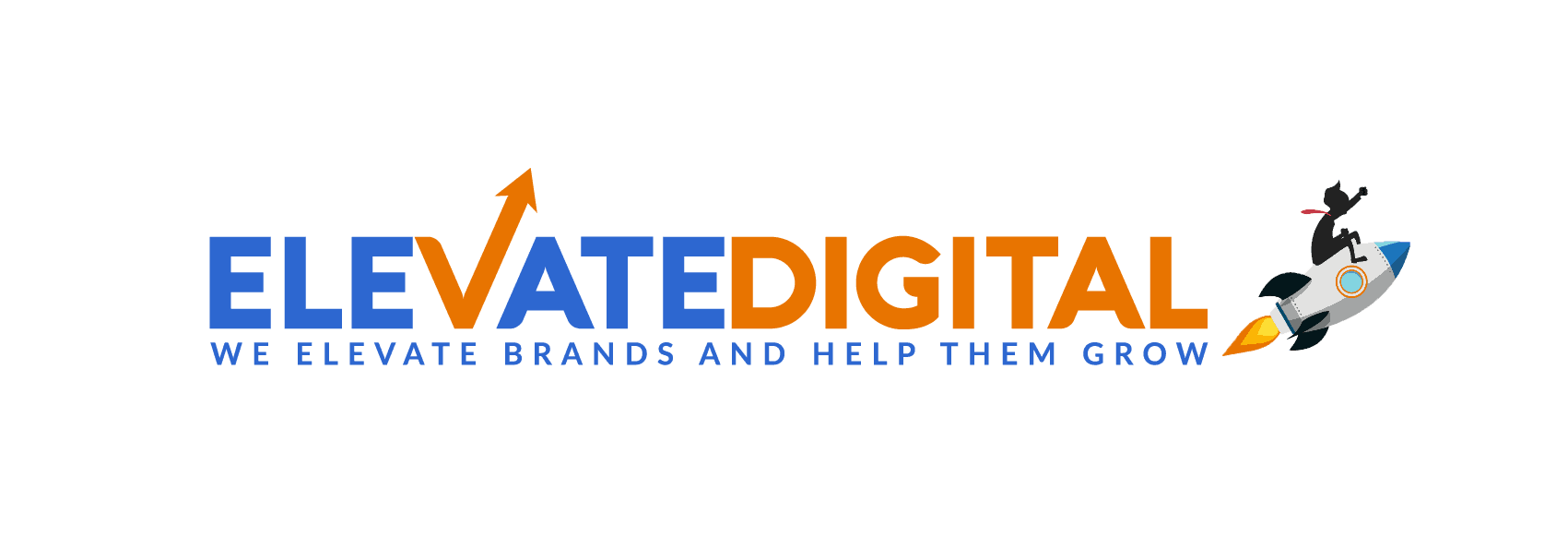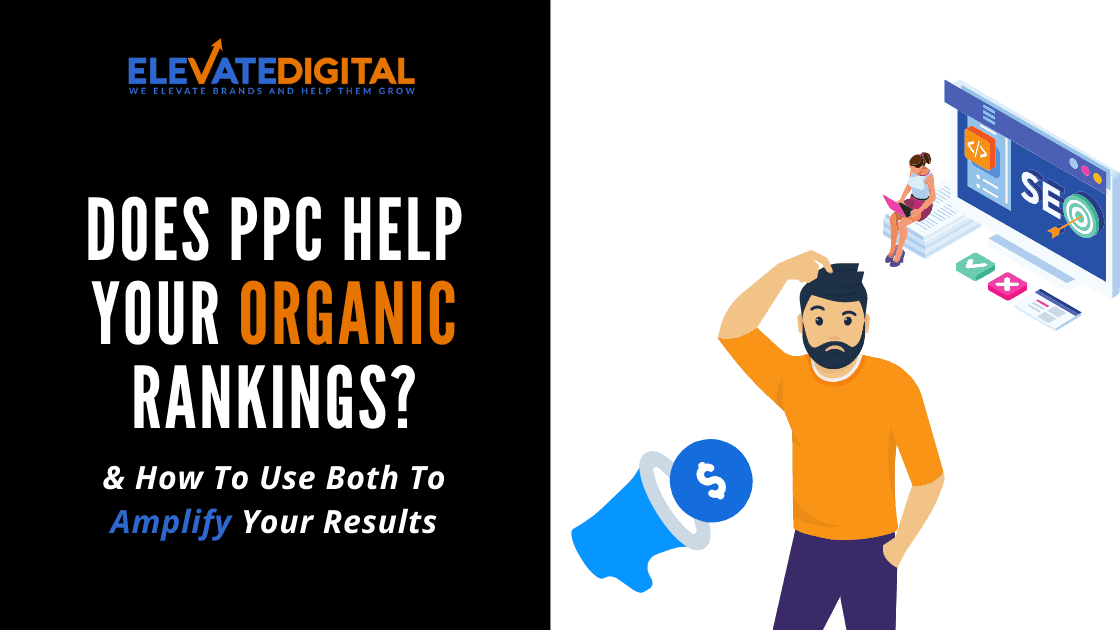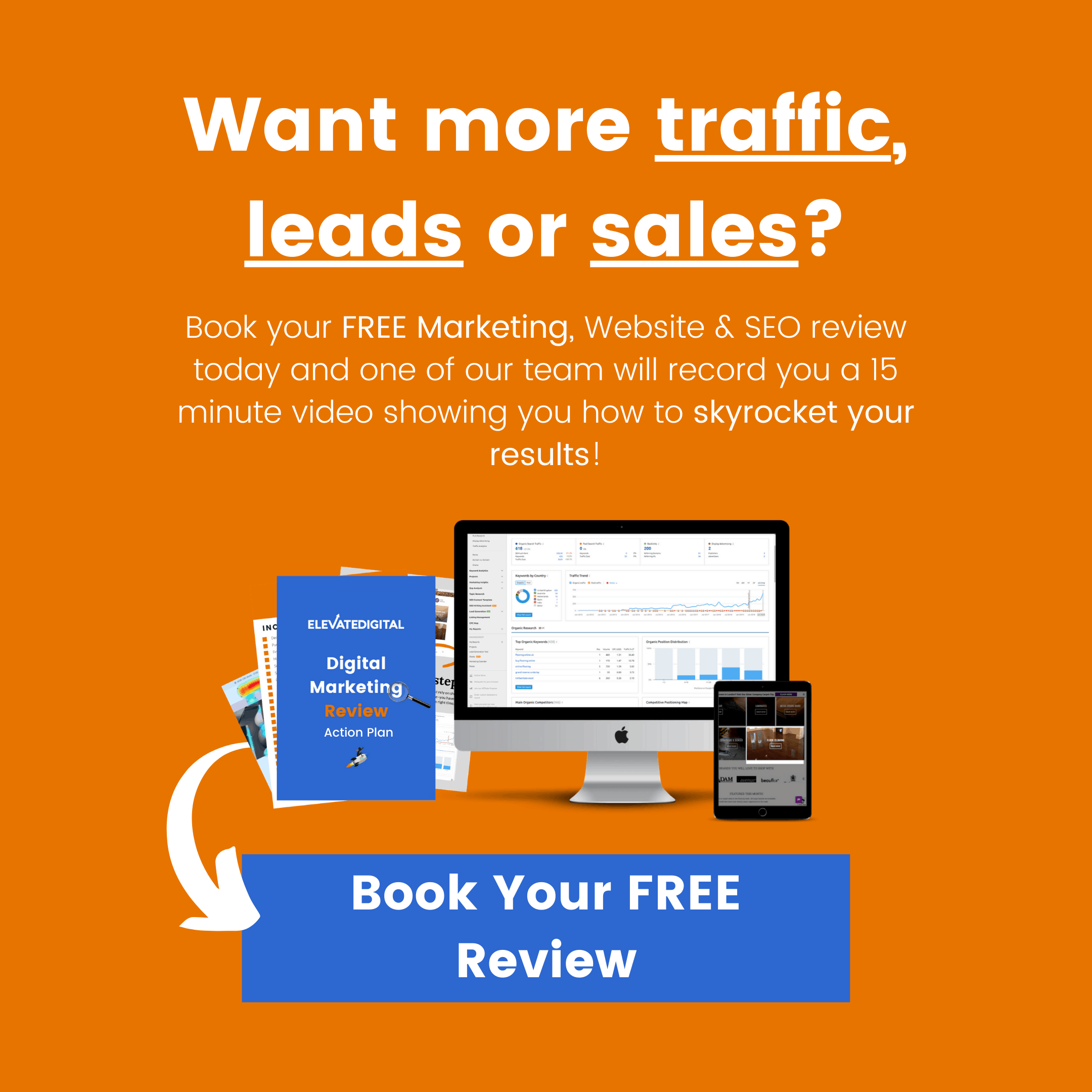You may have heard that PPC and SEO are completely separate things.
And that a PPC campaign won’t have any impact on your organic rankings.
Well, whilst the first part may be true; the second part isn’t entirely correct…
In fact, the right kind of paid advertising can potentially have a HUGE impact on your organic rankings over time by generating shares and backlinks (one of the biggest factors of domain authority and ranking) as mentioned in this great article by Moz.
But it ultimately comes down to two main things:
- The type/objective of ads you’re running
- The content you’re running ads to
First of all, let’s address the main question…
Does PPC directly affect your SEO and organic rankings?
No, PPC or paid advertising will not directly impact your organic rankings. However, by running ads or sponsoring genuinely useful and sharable content; you can amplify your chances of generating backlinks and social shares. All of which can impact your SEO and organic rankings.
Here’s how to use paid advertising in a way that can actually increase your organic ranking over time.
How to use paid advertising to boost your SEO
Typically when people advertise on either Google Ads or Facebook Ads, they tend to run campaigns with the “conversion” objective.
This objective means the platform will find people it thinks are most likely to BUY your product or service.
As such, the company will typically run promotional style ads directing visitors to a landing page to sign up for or purchase a product or service.
This kind of content isn’t particularly sharable and is unlikely to pick up any backlinks.
However, most ad platforms also give you the ability to run engagement/awareness campaigns.
Meaning the platform will find people who frequently engage with content.
The key here though, is that instead of sending people to a product page, sales page or a landing page.
You send them to a highly entertaining, educational or insightful piece of content like a blog or article of some sort.
Something that is highly sharable and could be a useful resource for people.
So what makes people share and link to your content?
It’s important to understand here the motivations people have for sharing or linking to content.
There’s typically a number of reasons:
➡️ Sharing this article will make them look good to their friends/colleagues/social circles
➡️ The article re-affirms a belief they have or strongly aligns with their identity
➡️ They work in a similar industry and sharing/linking to the article will benefit their clients
➡️ The article could be useful to their audience or as research for their own content
When you’re creating content or deciding what content to link to, think about these points.
For example, when I was writing this article; I looked up “Does PPC affect SEO?” to see what other articles existed and which sources I can link to.
So if somebody was running a Google Ads campaign for that search term. There’s a good chance they would have gotten a backlink from me.
Or alternatively, if I see a blog post about SEO being advertised on social media.
There’s a good chance I’ll not only read it; but if it’s good, I may also share it as I know it can be useful for my audience.
I might even link back to it in a future article.
After all, the point of blog is to be seen, consumed and ultimately help to move a prospect further along in the buyer journey.
Why sit and hope Google ranks it!
Think of this as a way of igniting your organic content and giving it more reach/visibility!
How PPC & SEO work together
Remember, the INTENT with engagement/awareness ad campaigns isn’t to make a purchase (although that may still happen).
The intent is to:
1. Generate brand awareness
2. Build trust and credibility
3. Get social media shares and backlinks (which is what will help you SEO)
When it comes to SEO; most people usually rely on people finding their content organically or doing outreach to other blogs/websites to generate backlinks.
Whilst there’s nothing wrong with that strategy.
By also using paid advertising in this specific way, you’re effectively amplifying your reach and increasing your chance of earning genuine, contextual and relevant links which is ultimately what Google wants.
Where PPC & SEO really start working together is in targeting multiple stages of the funnel.
For example, let’s so you’re a personal training…
Somebody may find your blog on Google called “7 ways to lose stubborn fat”
You could then re-target them with a paid ad campaign on Facebook offering a free trial to your “Fat burning academy”
This type of Omnipresent Marketing is great for building custom audiences over time as you can segment your audience based on the content they’ve previously engaged with.
This can leads to much higher conversions and a lower CPA (cost per acquisition).
You can learn about re-targeting in our Ultimate Guide To PPC.
What About The Other Way Around – Can SEO Help With PPC/Paid Advertising Campaigns?
The short answer is absolutely yes!!
Picture this as a scenario…
You go onto Google searching for “best payroll solutions for small businesses”.
You then encounter a blog by an accountancy firm that they’ve got ranking on page 1.
It gives some great value and advice that you go away to think about.
A couple of days later, you decide you want to hire a new accountant to help you with this, but you can’t remember the name of that business…
You decide to just ask a friend later if he has any companies he can suggest.
However, as you’re browsing Facebook or your favourite media publication later that day, you see an ad by that same company with a VERY specific call-to-action for get a free strategy call on payroll solutions.
This is a perfect example of a company using both SEO & PPC together to amplify and accelerate that customer journey.
See with re-targeting campaigns, you have the ability to target people with VERY specific messages based on the specific pages they’ve visited on your website.
And if you’ve ran ads for any amount of time, you’ll know that context and specificity is critical!
This full funnel marketing approach combining SEO with paid ads, allows you to get the right message, in front of the right audience, at the right time.
Want personalised advice on your marketing?
Book your FREE digital review today and we’ll record you a 10 minute video looking at your current strategy and suggest some ways you could significantly increase your results!
- Highly-Effective DTC Marketing Strategies & Examples - February 28, 2024
- How To Set Paid Media Marketing Budget - October 16, 2023
- The Ultimate Guide To A/B Testing - September 23, 2023




